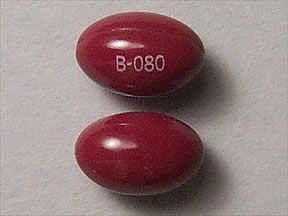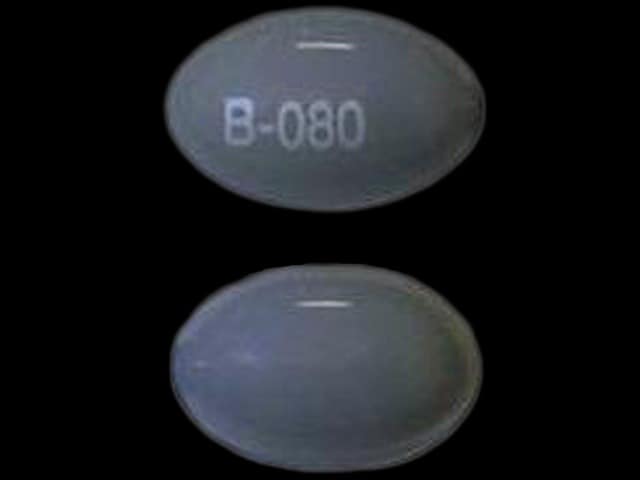What is Somnote used for?
- Somnote is used to treat sleep problems.
- It is used to calm you before a procedure.
- Somnote may be given to you for other reasons. Talk to your doctor.
Before taking Somnote, tell your doctor:
- If you are allergic to Somnote; any part of this medicine; or any other drugs, foods, or substances. Tell your doctor about the allergy and what signs you had.
- If you have any of these health problems: Kidney disease, liver disease, esophagus problems, or stomach or bowel problems like swelling, ulcers, or irritation.
- If you have heart problems.
This is not a list of all drugs or health problems that interact with this medicine.
Tell your doctor and pharmacist about all of your drugs (prescription or OTC, natural products, vitamins) and health problems. You must check to make sure that it is safe for you to take Somnote with all of your drugs and health problems. Do not start, stop, or change the dose of any drug without checking with your doctor.
What are some things I need to know or do while I take Somnote?
- Tell all of your health care providers that you take Somnote. This includes your doctors, nurses, pharmacists, and dentists.
- This medicine may be habit-forming with long-term use.
- When sleep drugs are used nightly for more than a few weeks, they may not work as well to help sleep problems. This is known as tolerance. Only use sleep drugs for a short time. If sleep problems last, call the doctor.
- If you have been taking Somnote on a regular basis and you stop it all of a sudden, you may have signs of withdrawal. Do not stop taking Somnote all of a sudden without calling your doctor. Tell your doctor if you have any bad effects.
- Avoid driving and doing other tasks or actions that call for you to be alert after you take Somnote. You may still feel sleepy the day after you take Somnote. Avoid these tasks or actions until you feel fully awake.
- Avoid alcohol while taking Somnote. Do not take Somnote if you drank alcohol that evening or before bed.
- Talk with your doctor before you use other drugs and natural products that slow your actions.
- This medicine may affect certain lab tests. Tell all of your health care providers and lab workers that you take Somnote.
- If you are 65 or older, use Somnote with care. You could have more side effects.
- Use with care in children. Talk with the doctor.
- Tell your doctor if you are pregnant, plan on getting pregnant, or are breast-feeding. You will need to talk about the benefits and risks to you and the baby.
How is Somnote best taken?
Use Somnote as ordered by your doctor. Read all information given to you. Follow all instructions closely.
For all uses of Somnote:
- Take with or without food.
- Take with a full glass of water.
- Swallow capsule whole. Do not chew, break, or crush.
For sleep:
- If you are using Somnote to help you sleep, take it 15 to 30 minutes before bedtime.
- Do not take Somnote unless you can get a full night's sleep (at least 7 to 8 hours) before you need to be active again.
What do I do if I miss a dose?
For sleep:
- If you take Somnote on a regular basis, take a missed dose as soon as you think about it.
- If you will not be able to get a full night's sleep (at least 7 hours) after taking the missed dose, skip the missed dose and go back to your normal time.
- Do not take 2 doses at the same time or extra doses.
- Many times Somnote is taken on an as needed basis. Do not take more often than told by the doctor.
Before surgery:
- Call your doctor to find out what to do.
What are the side effects of Somnote that I need to call my doctor about immediately?
WARNING/CAUTION: Even though it may be rare, some people may have very bad and sometimes deadly side effects when taking a drug. Tell your doctor or get medical help right away if you have any of the following signs or symptoms that may be related to a very bad side effect:
- Signs of an allergic reaction, like rash; hives; itching; red, swollen, blistered, or peeling skin with or without fever; wheezing; tightness in the chest or throat; trouble breathing, swallowing, or talking; unusual hoarseness; or swelling of the mouth, face, lips, tongue, or throat.
- Very bad belly pain.
- Feeling confused.
- Change in how you act.
- Fever, chills, or sore throat.
- Very bad dizziness or passing out.
- A heartbeat that does not feel normal.
- Trouble breathing, slow breathing, or shallow breathing.
- Some people have done certain tasks or actions while they were not fully awake like driving, making and eating food, and having sex. Most of the time, people do not remember doing these things. Tell your doctor if this happens to you.
What are some other side effects of Somnote?
All drugs may cause side effects. However, many people have no side effects or only have minor side effects. Call your doctor or get medical help if any of these side effects or any other side effects bother you or do not go away:
- Feeling sleepy the next day.
- Upset stomach or throwing up.
- Gas.
- Diarrhea.
- Bad taste in your mouth.
These are not all of the side effects that may occur. If you have questions about side effects, call your doctor. Call your doctor for medical advice about side effects.
You may report side effects to the FDA at 1-800-332-1088. You may also report side effects at https://www.fda.gov/medwatch.
If overdose is suspected:
If you think there has been an overdose, call your poison control center or get medical care right away. Be ready to tell or show what was taken, how much, and when it happened.
Somnote Images
How do I store and/or throw out Somnote?
- Store at room temperature. Do not freeze.
- Protect from light.
- Store in a dry place. Do not store in a bathroom.
- Keep all drugs in a safe place. Keep all drugs out of the reach of children and pets.
- Throw away unused or expired drugs. Do not flush down a toilet or pour down a drain unless you are told to do so. Check with your pharmacist if you have questions about the best way to throw out drugs. There may be drug take-back programs in your area.
Consumer information use and disclaimer
- If your symptoms or health problems do not get better or if they become worse, call your doctor.
- Do not share your drugs with others and do not take anyone else's drugs.
- Some drugs may have another patient information leaflet. Check with your pharmacist. If you have any questions about Somnote, please talk with your doctor, nurse, pharmacist, or other health care provider.
- If you think there has been an overdose, call your poison control center or get medical care right away. Be ready to tell or show what was taken, how much, and when it happened.
This information should not be used to decide whether or not to take Somnote or any other medicine. Only the healthcare provider has the knowledge and training to decide which medicines are right for a specific patient. This information does not endorse any medicine as safe, effective, or approved for treating any patient or health condition. This is only a brief summary of general information about this medicine. It does NOT include all information about the possible uses, directions, warnings, precautions, interactions, adverse effects, or risks that may apply to Somnote. This information is not specific medical advice and does not replace information you receive from the healthcare provider. You must talk with the healthcare provider for complete information about the risks and benefits of using this medicine.






